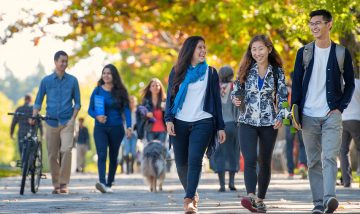Studies Looking for Participants
Allies in Health
We are inviting older individuals with a study partner (e.g. a spouse, friend, neighbour) to participate in our Allies in Health study. The primary purpose of this study is to understand how social support play a role in the everyday life of older adults including the impact on their health behaviours and goals set together with a study partner in the current pandemic and beyond. The results of the study can provide insight into health promotional strategies that can be shared with older adults on what they can do to maintain their well-being and achieve their goals in their day to day life. Please note, that this study includes COVID-related questions. Answers to these questions will help us understand the context of your other answers, but you can skip any questions you do not feel comfortable answering.
We are inviting individuals from the community who are age 60 or above to participate in this study with a study partner who is age 18 or above. You will be asked to approach a person you feel close to, who you interact with on a regular basis, who cares about your health, and who you can turn to for support. This study partner could be a spouse, a friend, an adult child, or another social tie. This person will be your partner for the study. The primary purpose is to consider how social support play a role in the everyday life of older adults including the impact on their health behaviours and goals set together with a study partner.
For more information please visit https://blogs.ubc.ca/alliesstudy/
You can also email us at allies@psych.ubc.ca or phone 604-822-3549.
GRIP (Goal Regulation in Individuals and Partners) Study
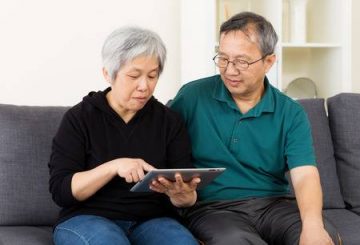
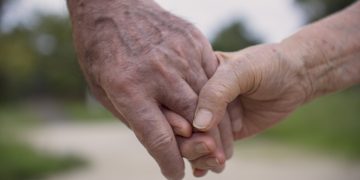
How can partners help each other accomplish goals that are difficult to realize alone? This project aims to provide a deeper understanding of the strategies that couples use to solve everyday problems individually and together as a team.
We are looking for couples aged 60 years and older. Participation involves interview (Zoom) sessions and online, brief morning and evening questionnaires for a period of 10 days. Each partner receives a $50 Canadian Amazon gift card as a token of appreciation.
Are you and your partner both interested in participating? Call us at 604-822-3549 or email us at gripstudy@psych.ubc.ca.
Your experience matters, tell us about it!
This study is funded by the Social Sciences and Humanities Research Council of Canada.
Past Studies
Allies in Health Study
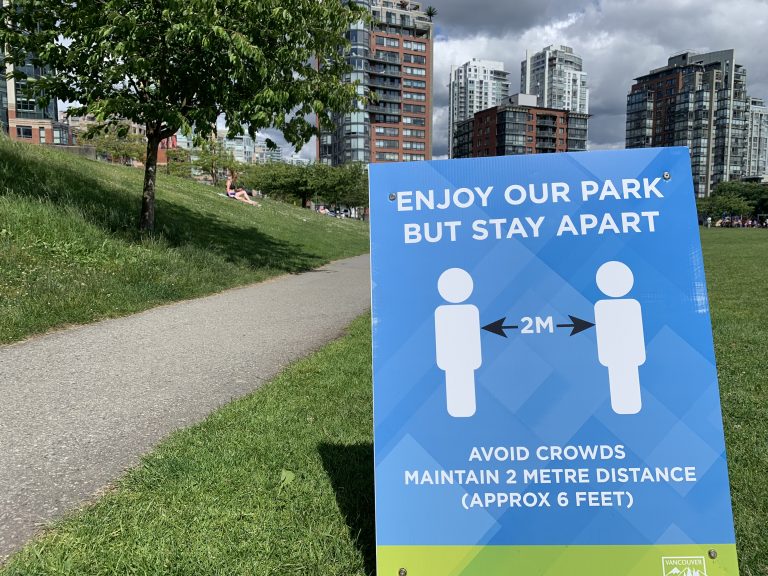
We are inviting older individuals together with a close other (e.g. a spouse, friend, neighbor) to participate in the Allies in Health Study. The primary purpose of this study is to understand how close others shape each other’s health behaviours, social interactions, and experiences in the current pandemic. The results of the study can provide insight into what older adults can do to maintain their well-being given the current circumstances. Please note, that this study includes COVID-related questions. Answers to this questions will help us understand the context of your other answers, but you can skip any questions you do not feel comfortable answering.
We are inviting individuals from the community who are age 65 or above to participate in this study. You will be asked to approach a person you feel close to, who you interact with on a regular basis, who cares about your health, and who you can turn to for support. This social partner could be a spouse, a friend, an adult child, or another social tie. This person will be your partner for the study. The primary purpose of this study is to examine how people navigate everyday life individually and together as a team.
For more information please visit https://blogs.ubc.ca/alliesinhealthstudy/
You can also email us at allies@psych.ubc.ca or phone 604-822-3549.
Tracking Health and Relationships in Varying Everyday Contexts (THRIVE) Study

The THRIVE Study seeks to better understand how Canadians can maintain their wellbeing and social connectedness in times of social distancing. We recognize that these are extraordinary circumstances that require all of us to flexibly adapt. We are particularly interested in what distinguishes good days from less good days, to figure out what helps people thrive in uncertain times and continue engaging in meaningful activities and social interactions.
Participation includes a 45 to 90-minute online questionnaire asking questions about individual backgrounds, personality, social relationships, attitudes, and wellbeing. Then, for ten days, participants are asked to complete two brief surveys per day: one in the morning and one in the evening. These brief surveys capture participants’ unique contexts, their thoughts and outlook on the day, challenges that need to be addressed, social interactions and experienced wellbeing.
For more information visit our study website https://blogs.ubc.ca/thrivestudy/
You can also email us at thrive@psych.ubc.ca or phone 604-822-3549.
PULSE (Partners Using Linked Strategies Effectively) Study
 Life after a stroke can be difficult for the survivors and their families. Help other stroke survivors by taking part in research that explores how partners can promote each other’s health behaviours. The focus of this project is on the little things that stroke survivors and their spouses can do every day, such as physical activity and eating more fruit and vegetables, to reduce their cardiovascular risk. Volunteers receive one tablet per couple or monetary reimbursement, a customized health report, and a free technology workshop.
Life after a stroke can be difficult for the survivors and their families. Help other stroke survivors by taking part in research that explores how partners can promote each other’s health behaviours. The focus of this project is on the little things that stroke survivors and their spouses can do every day, such as physical activity and eating more fruit and vegetables, to reduce their cardiovascular risk. Volunteers receive one tablet per couple or monetary reimbursement, a customized health report, and a free technology workshop.
Are you or your partner living with stroke? Find out more about this project by clicking here. You can also call us at 604-822-3549 or e-mail us at pulse@psych.ubc.ca
Watch our video here to meet recent PULSE participants and learn first-hand about their experiences taking part in this study.
The study is funded by the Heart and Stroke Foundation of Canada. It will inform future interventions that promote the health of stroke survivors and their spouses.
Linked Lives Study
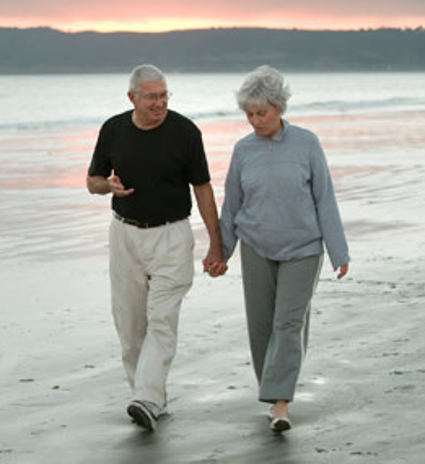
How do spouses influence each other’s health? We know very little about the daily life dynamics and mutual influences that tie together health in older couples. This study takes an innovative approach to examining important spousal factors such as collaborative problem solving that helps older couples age well. Specifically, we examine if and how older spouses recruit each other’s help to collaboratively solve the problems they encounter as part of their daily life routines. This study uses a combination of daily life assessments, accelerometry (to capture physical activity), and saliva samples (for stress hormone assays). It also includes yearly follow ups.
SAVE (Stress and Visual Eccentricity) Study

How can spouses support one another to do well on a cognitive task? While much research has been dedicated to aging and cognition, relatively little is known about how members of a couple may benefit one another on certain cognitive tasks. Couples from the community aged 60 and above were asked to complete a series of computerized scales and a task that measures visual attention.
HARP (Health and Intergenerational Activities Research Project) Study
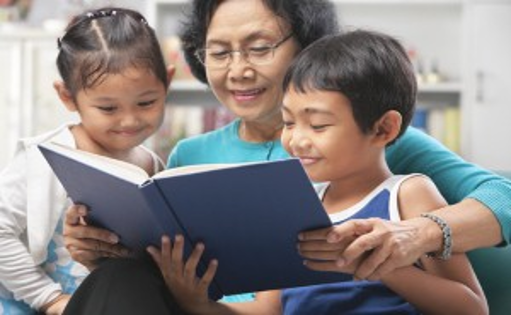
Social relationships and social interactions are important for health and wellbeing, but individuals also spend a lot of time in solitude. This community-based study takes an innovative approach to fostering healthy aging through everyday prosocial activities, and also examines when and for whom solitude-seeking may be conducive to wellbeing. We use a combination of experience-sampling, photographic methods, and standardized behavioural measures to better understand motivations, facilitators, and barriers to social engagement among individuals living in Canada and in China. By participating in the study, older adults also learn how to use tablet technology for everyday life purposes that serve to promote social engagement and physical and cognitive wellbeing. This Vancouver Foundation funded study is part of a collaborative project with Kitsilano Neighbourhood House, the UBC Learning Exchange, and the Motivation and Emotion Lab at the Chinese University of Hong Kong.
SWEET (Social Wellbeing and Everyday Engagement Tracking) Study
Having a strong network of peer friendships and being involved in the campus community are important determinants of student success and wellbeing. However, students, and particularly international students, are susceptible to social isolation. This project focuses on how everyday prosocial behaviour (helping others and volunteering) can help students of diverse cultural backgrounds build social connections and improve their emotional wellbeing. Using innovative experience sampling and photovoice methods with iPods, we aim to gain insight into what draws students to specific everyday prosocial activities, along with potential facilitators and obstacles to social engagement in daily life.
PACE (Physical Activity, Cognition, and Emotion in Older Adults) Study
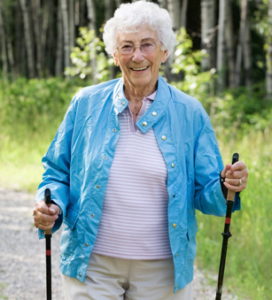 Everybody ages in his or her own way. Importantly, physical activity can promote health and well-being. We aim to better understand the psychological factors that explain why some older adults are successful at implementing physical activities into their daily life routines and maintain them when faced with difficulties while other older adults struggle. This study extends previous research on goals, self-regulation, and physical activity in community dwelling older adults by examining the psychological determinants of physical activity using an innovative combination of multiple daily assessments and objective physical activity measurement as participants engage in their typical daily life routines including yearly follow-ups.
Everybody ages in his or her own way. Importantly, physical activity can promote health and well-being. We aim to better understand the psychological factors that explain why some older adults are successful at implementing physical activities into their daily life routines and maintain them when faced with difficulties while other older adults struggle. This study extends previous research on goals, self-regulation, and physical activity in community dwelling older adults by examining the psychological determinants of physical activity using an innovative combination of multiple daily assessments and objective physical activity measurement as participants engage in their typical daily life routines including yearly follow-ups.
IDEA (Identity Development and Emotion in Adolescents) and their Families Study
 This study investigates the role of emotions in the development of identity during adolescence, by taking a fine-grained look at the daily life experiences of adolescents and their parents. We recruited adolescents aged 15 to 19 and their mothers or fathers to participate. Using daily i-Pod questionnaires, we were able to get a detailed picture of how emotions change throughout the day, how emotions travel between family members, and finally, how these emotions are related to individuals’ goals across time. At 6 and 12 months post-study we asked all participants to complete another online survey to update us on themselves and their goals.
This study investigates the role of emotions in the development of identity during adolescence, by taking a fine-grained look at the daily life experiences of adolescents and their parents. We recruited adolescents aged 15 to 19 and their mothers or fathers to participate. Using daily i-Pod questionnaires, we were able to get a detailed picture of how emotions change throughout the day, how emotions travel between family members, and finally, how these emotions are related to individuals’ goals across time. At 6 and 12 months post-study we asked all participants to complete another online survey to update us on themselves and their goals.
